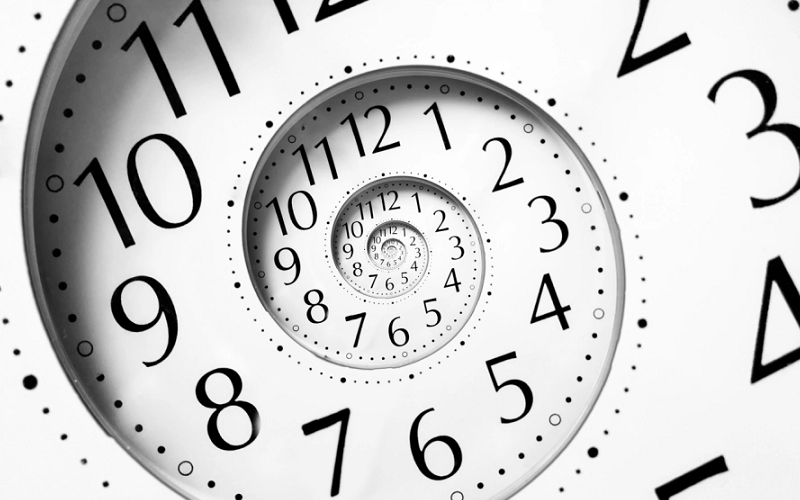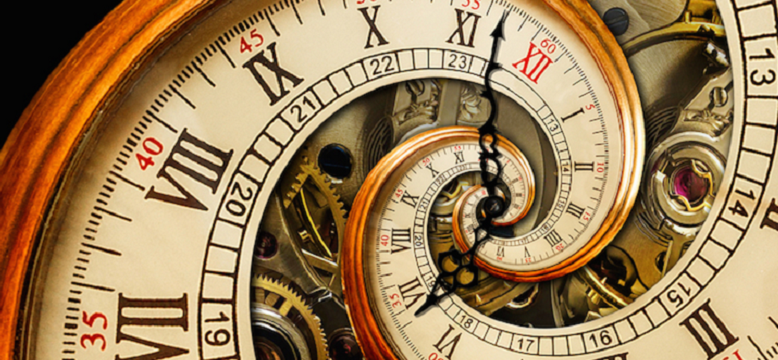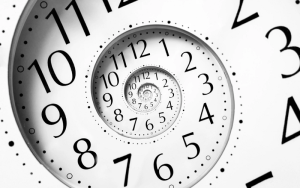
In our fast-paced modern world, we often find ourselves racing against the clock, enslaved to its relentless ticking. But beyond this common understanding of time, as a mere measurement of our days, there lies a profound, spiritual dimension that can alter our perception and experience of life. Time is an elusive, mystifying concept that governs our lives, yet remains an enigma. Here we explore Chronos – the linear, sequential time we all are accustomed to, and contrast it with Kairos – a transformative, opportune moment transcending the physical boundaries of time.
Contents
Introduction to Time
Time is an enigmatic presence that escorts us throughout our journey in life. In the mundane world, we measure it in seconds, minutes, and hours. We see its effects in the aging of bodies, the cycle of seasons, the rise and fall of civilizations. But what really is time? Is it merely a physical quantity, a mathematical abstraction, or could it have a deeper, spiritual significance?
Definition of Time
From a conventional perspective, time is considered a non-spatial continuum in which events occur in irreversible succession from the past through the present to the future. It’s a fundamental quantity that we use to sequence events, to compare the duration of events, and the intervals between them. Yet, from a philosophical and spiritual perspective, time is much more complex, subjective, and layered.
Importance of Understanding Time in a Spiritual Context
Understanding time in a spiritual context allows us to tap into its deeper essence. It can enrich our perspective, making us appreciate the ephemeral nature of life and the preciousness of the present moment. This understanding can lead to personal growth, and open the gateway to self-awareness, and spiritual enlightenment.
By considering time through the lens of spirituality, we transcend the mundane, mechanical perception and start to appreciate the interplay of moments – the dance between Chronos and Kairos, which we will explore in the following sections. It is a journey that takes us beyond the constraints of physical reality into the realm of profound, spiritual experiences.

The Two Types of Time: Chronos and Kairos
As we delve deeper into the mysteries of time, it is vital to understand the two forms that time can take – Chronos and Kairos. These two ancient Greek concepts of time present a profound and holistic view, enabling us to explore time not just as a physical parameter but as a deep, spiritual dimension.
Explanation of Chronos
Chronos, often personified as an old man with a scythe, represents linear, sequential time – the chronology of days, years, and lifetimes. It is the measurable quantity that we commonly refer to as time, the ticking of the clock, the progression of the calendar [1].
Origin and Meaning
The word Chronos has its roots in ancient Greece and is derived from the word ‘Khronos,’ which translates to ‘time.’ In Greek mythology, Chronos was seen as a god, often depicted as a wise old man with a long beard, wielding a sickle, a clear symbol of the relentless, consuming nature of time.
Its Role in Our Everyday Life
Chronos governs our daily life and activities. It structures our routines, deadlines, and plans. The awareness of Chronos is crucial for our practical lives. It organizes our world into past, present, and future, and helps us measure the progress of our lives.
Understanding Kairos
Now let’s turn our attention to a different aspect of time, one that is often overlooked, yet carries profound significance – Kairos. Unlike Chronos, Kairos is less about the chronological sequence of time and more about the right or opportune moment [2].
The Spiritual Significance
Kairos has a deeply spiritual connotation. It refers to a moment of indeterminate time in which something special happens, a moment that transcends the linear progression of time. It’s the moment of transformation, insight, and profound change.
How Kairos Differs from Chronos
Kairos and Chronos are different dimensions of time. While Chronos is quantitative, Kairos is qualitative. Chronos is regular, predictable, and constant, while Kairos is unique, unpredictable, and variable. Kairos breaks free from the constraints of sequential time, offering us a glimpse into the timeless essence of the universe.
The Intersection of Chronos and Kairos
As we examine the duality of time, we can see that Chronos and Kairos are not mutually exclusive, but rather, they intersect and interplay in our lives in a fascinating way [3].
Explanation of Their Interrelation
Chronos and Kairos coexist and interweave in our everyday experiences. While Chronos structures our lives, it is within these structures that we find the openings, the special moments of Kairos. These profound moments can’t be measured or predicted; they are felt and experienced. They give depth and meaning to the linear progression of Chronos.
The Balance Between Both Concepts
Balancing the awareness of Chronos and Kairos in our lives can bring about a richer, more fulfilling experience of time. By being mindful of Chronos, we can manage our lives effectively. And by staying open to Kairos, we can seize the transformative moments that life presents us with. This dance between Chronos and Kairos, between the sequential and the opportune, between the measured and the immeasurable, forms the rhythm of our lives and the symphony of our existence.

The Concept of Time in Different Spiritual Traditions
Having explored the dual concepts of Chronos and Kairos, it’s worth noting that these two aspects of time are not confined to ancient Greece alone. Different spiritual traditions around the world have their own unique perspectives on time, many of which echo the dichotomy of Chronos and Kairos. Let’s look at how time is perceived and understood in three of the world’s major spiritual traditions: Buddhism, Hinduism, and Christianity [4].
Time in Buddhism
Buddhism, a spiritual tradition rich in wisdom and introspection, offers profound insights into the nature of time.
Concept of Impermanence
Central to Buddhist teaching is the concept of impermanence, or ‘anicca.’ This concept implies that everything is constantly changing and nothing lasts forever. In this context, time is seen as a continuous flow of transient moments, each giving way to the next in an unending cycle of change. This understanding of time aligns with the notion of Chronos – the linear, sequential progression of moments.
Relationship Between Time and Suffering
Buddhism also speaks about the relationship between time and suffering. It teaches that much of our suffering comes from clinging to the past or worrying about the future. Liberation, according to Buddhism, is achieved when we can fully inhabit the present moment – a concept that resonates strongly with the idea of Kairos, the opportune moment that exists outside the linear progression of time.
Time in Hinduism
Hinduism, one of the oldest spiritual traditions, presents an elaborate and cyclical view of time.
The Cycles of Time: Yugas
Hindu philosophy describes time as a series of cycles, or ‘Yugas.’ Each Yuga has a specific duration and character, and they repeat in a circular fashion, echoing the concept of Chronos as a recurring, measurable phenomenon. This cyclical view of time suggests that our universe undergoes periodic cycles of creation, sustenance, and dissolution.
The Concept of Eternal Now: Present Moment Awareness
In addition to its cyclical view of time, Hinduism also emphasizes the importance of living in the present moment. Scriptures often guide adherents to focus on the ‘Eternal Now,’ suggesting that true reality exists outside the confines of past and future. This focus on the present moment and the transcendence of linear time resonates with the concept of Kairos.
Time in Christianity
Christianity offers its own unique perspective on time, one that integrates the linear progression of events with the transformative moments of spiritual significance.
The Apocalyptic View of Time
Christianity traditionally holds an apocalyptic view of time. It believes in a linear progression of events, starting from the creation, moving through the fall of man and the redemption through Christ, and looking forward to the end of times. This perspective is aligned with the concept of Chronos.
Chronos and Kairos in the Bible
However, similar to the Greek understanding, the Bible also references the two forms of time: Chronos and Kairos. Chronos is used in the context of chronological time, while Kairos is used to refer to the ‘right time,’ moments of divine intervention or significant spiritual change. Thus, Christianity beautifully integrates the linear progression of Chronos with the transformative moments of Kairos.

The Enigma of Time: A Quantum Perspective
Now that we have explored the concept of time from a spiritual lens, it’s time to approach this enigma from another perspective – that of quantum physics. This may seem like a leap, but you’ll soon find that quantum physics, in its own unique way, also acknowledges the duality of Chronos and Kairos. It’s in this strange world of quantum particles that we witness the time-defying phenomena that boggle our minds and challenge our conventional understanding of time [5].
Quantum Physics and Time
Quantum physics, the fundamental theory in physics that provides a description of the physical properties of nature at the scale of atoms and subatomic particles, gives us a fascinating insight into the concept of time.
The Flow of Time: Forward or Backward?
The most prevalent understanding of time is that it flows in one direction – from the past through the present to the future. This is also known as the ‘arrow of time.’ However, the strange world of quantum mechanics doesn’t necessarily abide by this rule. Some interpretations of quantum physics suggest that at the tiniest scales, time could possibly move backward, hinting at a reality where the conventional flow of Chronos may not apply.
Time Dilation: The Stretching of Time
Another mind-bending concept that emerges from Einstein’s theory of relativity is time dilation. Time dilation refers to the idea that time slows down or speeds up depending on how fast you’re moving or how much gravity you’re experiencing. In this context, Chronos, the sequential time, can be stretched or compressed, adding another layer of complexity to our understanding of time.
The Interplay of Quantum Physics and Spirituality
As we delve deeper, we find that quantum physics is not just about particles and forces, but it also touches on profound philosophical and spiritual questions.
The Observer Effect: How Consciousness Affects Time
One of the most intriguing aspects of quantum physics is the observer effect, which suggests that the act of observation changes the behavior of quantum particles. Some interpretations suggest that this puts consciousness into the heart of reality creation. When we translate this into our exploration of time, it hints at the idea that our consciousness might affect our experience of time, bringing Kairos – the opportune, subjective moment – into the picture.
Quantum Entanglement: Timelessness in Relationships
Another fascinating phenomenon in quantum physics is quantum entanglement, where particles become interconnected, and the state of one instantly influences the state of the other, no matter the distance separating them. This suggests a level of connection that exists outside the traditional confines of space and time, resonating with the spiritual experiences of oneness and timelessness [6].
Thus, the world of quantum physics, as bewildering as it may be, offers us a profound understanding of time, one that resonates with and enriches our spiritual exploration of Chronos and Kairos. It reminds us that our understanding of time, as with all aspects of reality, is continuously evolving and deepening, allowing us to glimpse into the beautiful intricacies of the universe we inhabit.
Practical Ways to Experience Kairos in Daily Life
While understanding the intricate concepts of Chronos and Kairos can be enlightening, it is equally important to bring this knowledge into our day-to-day lives. To feel the depth of time, to experience those Kairos moments is to truly connect with the mystical aspects of our existence.
Cultivating Mindfulness
One of the simplest and most effective ways to experience Kairos is through the practice of mindfulness.
The Power of the Present Moment
Being completely present is the key to stepping into Kairos. Mindfulness is the practice of bringing your full attention to the present moment, without judging it or wishing it were different. In this state of full presence, we step out of the sequential time of Chronos and enter the qualitative time of Kairos.
Mindfulness Techniques
There are various mindfulness techniques that can help us cultivate this presence. This can be as simple as mindful breathing, where you fully focus on the sensation of your breath flowing in and out. Other practices include mindful eating, where you savor each bite, or mindful walking, where you become fully aware of each step.
Embracing Spontaneity
Another way to experience Kairos is by embracing spontaneity in our lives.
The Role of Spontaneity
In our scheduled, Chronos-driven lives, we often forget the joy of spontaneity. Spontaneous moments are often those when we break free from the chains of sequential time and experience the transformative power of Kairos.
Cultivating Spontaneity
Spontaneity can be cultivated by occasionally breaking routines, trying new things, and being open to unexpected experiences. It can be as simple as taking a different route to work, trying a new hobby, or even just spending a day without any plans.
Harnessing the Power of Nature
Nature, in its profound beauty and rhythm, can be a gateway to Kairos moments.
Nature and Time
Being in nature, observing the slow rhythm of a sunset, or the delicate blossoming of a flower, can help us step out of Chronos and into Kairos. Nature operates on its own time, unhurried by our clocks and schedules, offering us a chance to experience a different pace and quality of time.
Engaging with Nature
Engage with nature by taking walks in the park, watching a sunrise or sunset, or just spending quiet moments observing the natural world around you. These activities can provide opportunities for Kairos moments to emerge.
Deepening Connections
Kairos moments often occur in deep connections with others.
Connections and Time
Deep, meaningful conversations, shared experiences, and moments of empathy often transcend the confines of Chronos and allow us to experience Kairos. In these moments, we connect on a level beyond the physical, touching the spiritual essence of time.
Nurturing Relationships
Invest time in nurturing your relationships. Spend quality time with loved ones, have heartfelt conversations, express and receive love openly – these are all ways to invite Kairos moments into your life.
References
[1] More Kairos, Less Chronos (Live More. Work Less.)
[2] Chronos and Kairos: how we measure our days and our lives
[3] Chronos and Kairos in Lockstep
[4] Chronos vs Kairos: Understanding how the Ancient Greeks viewed time will make your life richer
[5] The Ancient Greeks had two words for time: Chronos and Kairos – the difference?
[6] What Time Is It? A Difference in Definition







